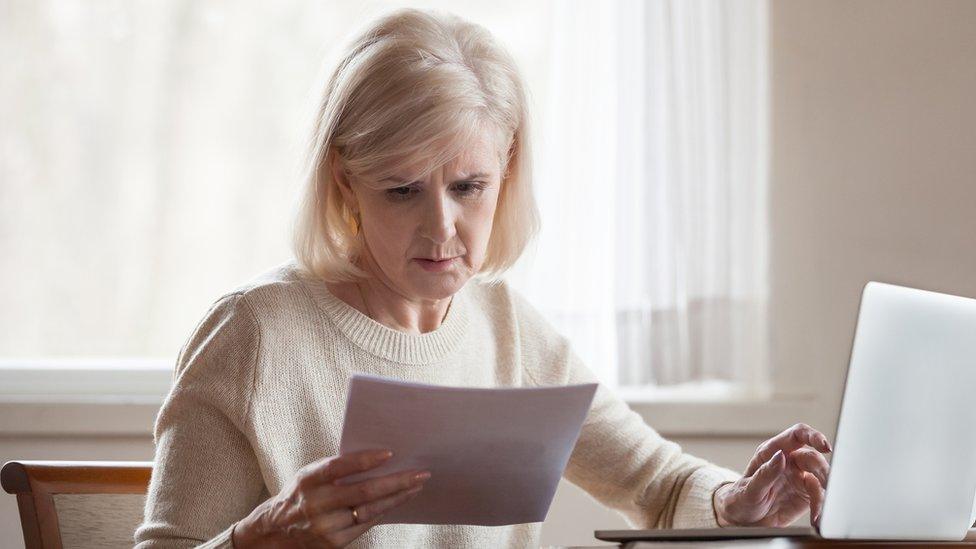Petrol prices hit record high, says RAC
- Published
- comments
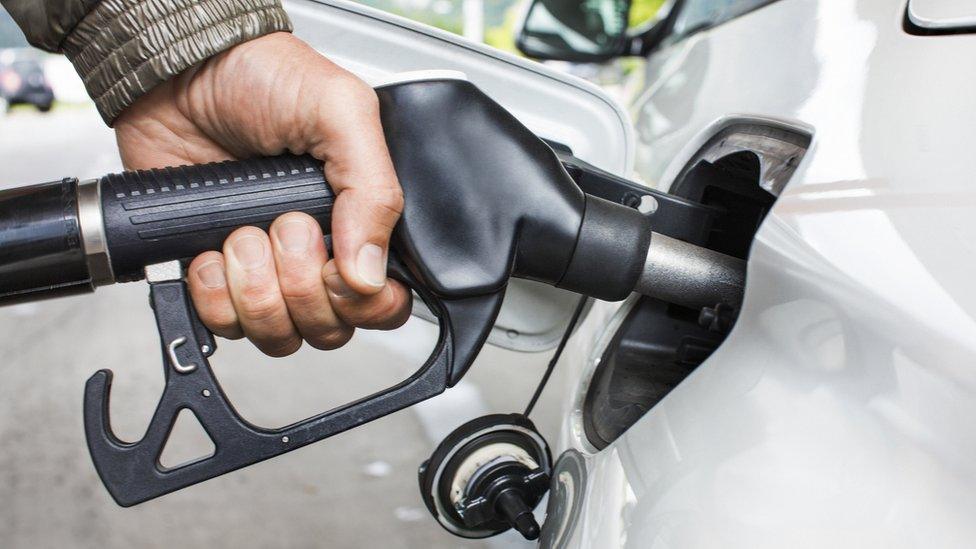
Petrol prices have hit 142.94p a litre, their highest level to date, according to the RAC motoring organisation.
Fuel prices were last around this level in April 2012.
It is now £15 more expensive to fill up an average family car than a year earlier, said the RAC, which called the new high a "dark day for drivers".
The RAC said the increase was partly due to a doubling of the oil price since last year. Some analysts believe the oil price could rise further.
The price of unleaded petrol has jumped by 28p a litre since last October, the RAC said, meaning it now costs £78.61 to fill a family car.
"This will hurt many household budgets and no doubt have knock-on implications for the wider economy," a spokesman for the RAC said.
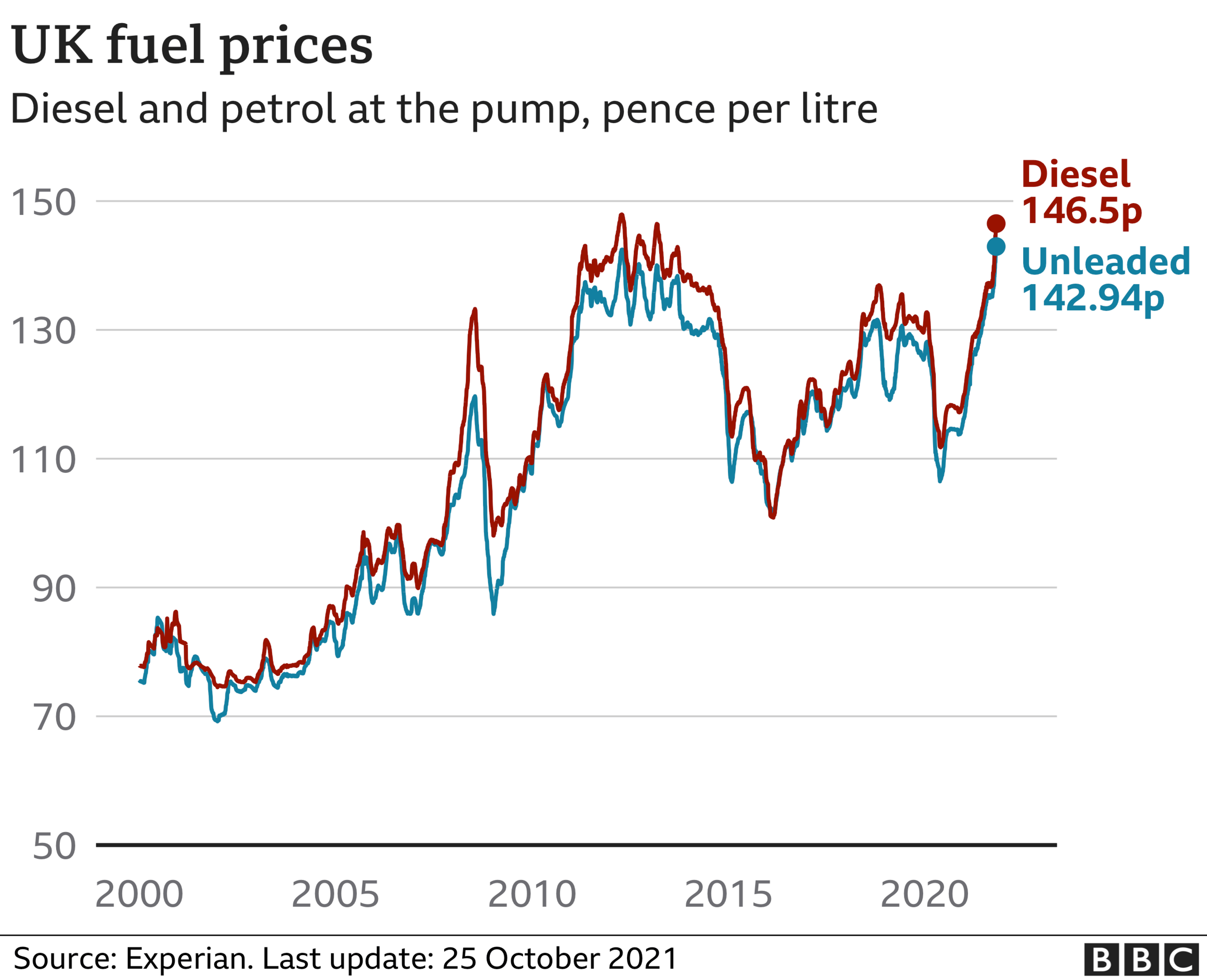
The organisation said that other costs, aside from oil, had also pushed up fuel prices.
Retailers had increased their profit margins by 2p a litre from around 5.5p in April last year to 7.5p a litre.
The RAC said retailers, particularly the smaller, independent ones, were trying to rebuild their profits after the steep fall in sales prompted by the first UK lockdown in spring last year.
In addition to this, the ethanol component of unleaded petrol was doubled to 10% last month in the more eco-friendly E10 fuel, but as ethanol is more expensive than petrol, that added about 1p a litre.
Duty paid on fuel is currently 57.95p a litre, more than the cost of the combined bio and petrol components, which amount to around 50p.
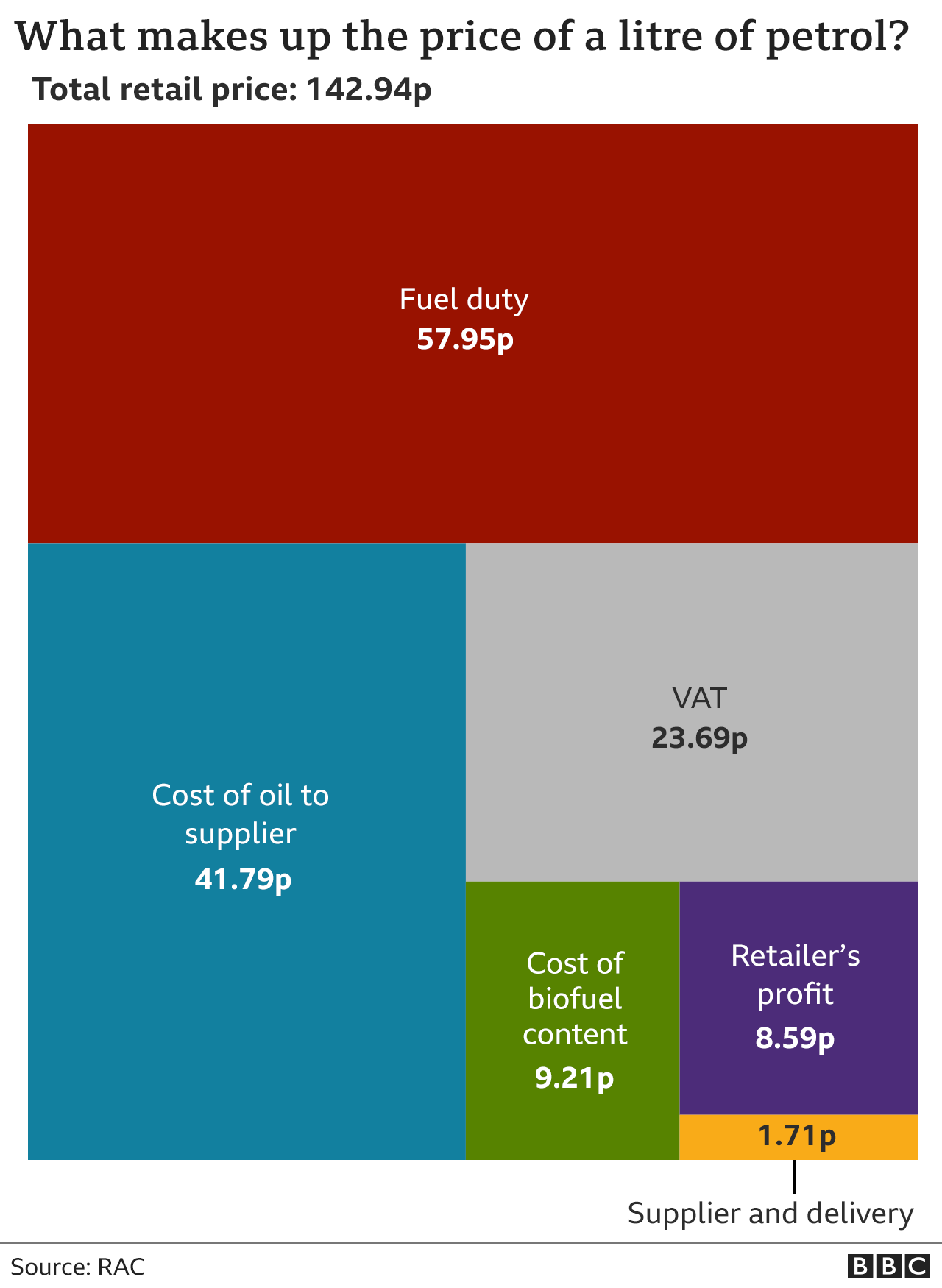
VAT, currently around 24p a litre, is applied on top of all other elements of the petrol price, including duty and the retailer's profit margin.
Petrol and diesel cars are slowly being phased out as part of pledges to tackle climate change.
The government says it will ban the sale of these from 2030.
The introduction of the E10 fuel as standard this summer is also part of that drive.
The Department for Transport says bringing in this new fuel could cut carbon emissions by 750,000 tonnes a year, the equivalent of taking 350,000 cars off the road.
- Published15 October 2021
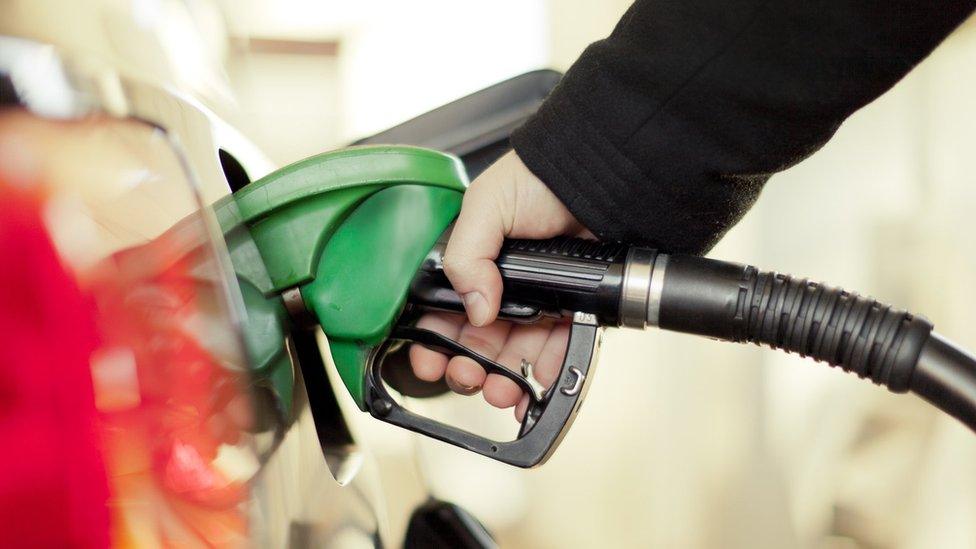
- Published21 October 2021
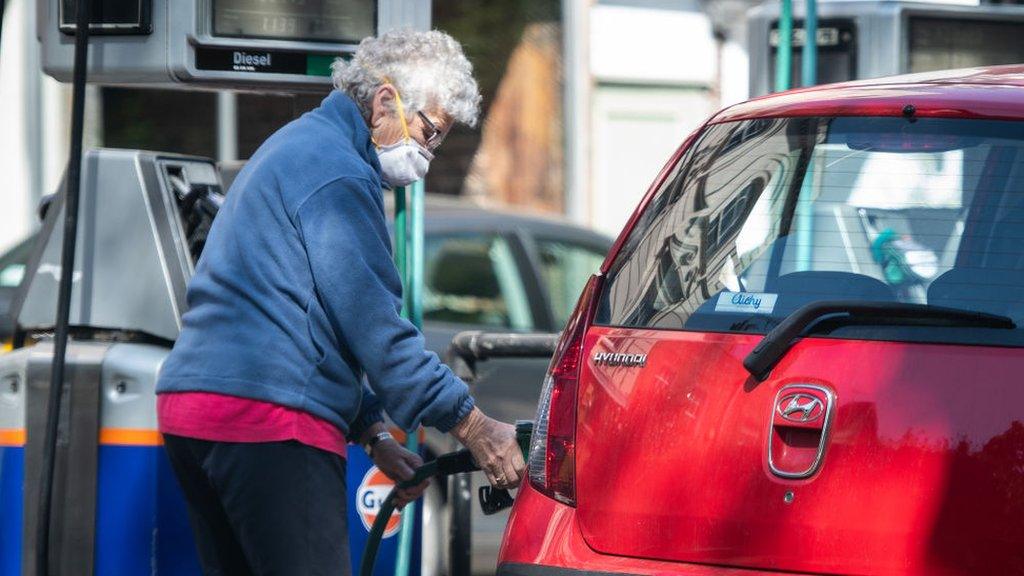
- Published31 August 2021
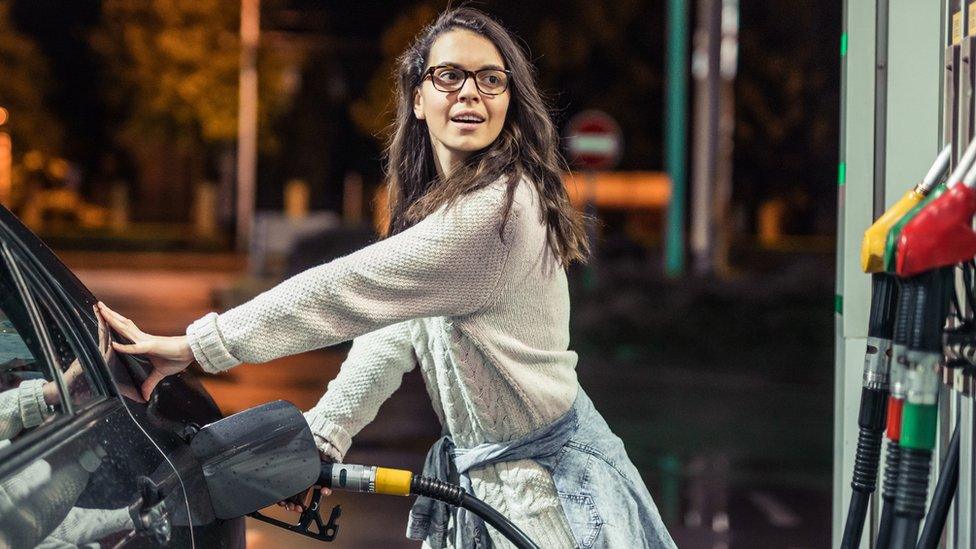
- Published14 June 2022
